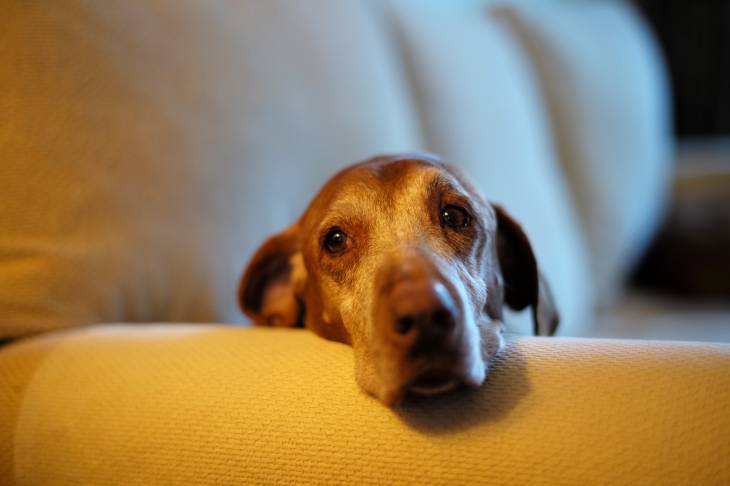My Dog Died (How to Cope With Your Loss)
When we get a dog, we know in the back of our mind that we are going have to deal with him passing away one day. Nonetheless, it still delivers a gut punch when it actually happens. While grieving may be difficult, there are ways you can properly carry on.
It’s Perfectly Normal to Experience Grief Over Losing a Dog, So Grieve
If you’ve never lost a dog before, you may be surprised by how hard it hits you. After all, you may enter into this latter stage of your relationship with your pooch thinking or even rationalizing that it is just a pet as opposed to, say, a relative. Yet it’s important to note that you will be impacted in some way.
The impact can manifest itself in either an emotional way or a behavioral way. Emotionally speaking, you may find yourself in a state of denial, anger, depression, or guilt. You may even spend an inordinate amount of time recounting your dog’s final hours or days.
From a behavioral standpoint, you may find it difficult to clear out your dog’s possessions from the home, keeping them in prominent places in your home in some cases. You may also relegate yourself to carrying out the same routine as if he was still with you. Withdrawal from family and friends is also within the realm of possibility.
Rest assured that these behaviors are perfectly normal responses to the loss of your dog. Your pooch was not just a pet; he was a member of the family, and he contributed lots of love and joy to your home. This is a loss that deserves to be grieved, so you should not keep your emotions of grief bottled up just because it’s over a dog.
There is no timetable for the grieving process. You should feel free to work through your grief as long as you need, as trying to stifle these feelings will make it difficult for you to move on - especially if you plan on getting a new dog. And don’t be afraid to reach out to a support group if you feel particularly overwhelmed by the grieving process.
Moving On After Your Dog’s Death

One of the essential steps of moving beyond the death of your dog is figuring out how to handle his remains. In some cases, you may feel it best to simply leave the pet at the vet or the clinic where he passed and have them handle the disposal. If you go this route, you should double check with them to see if they charge a disposal fee.
You could also consider a pet cemetery if you want to create a sense of permanence and an enhanced air of dignity around your dog’s passing. Cremation could also be a viable, more cost-effective option, and gives you plenty of options as to how his remains may be handled. While you may consider home burial as an option, you may want to check with your city first, as many cities have put ordinances on the books that outlaw this practice.
Many people will choose to move on from the death of a dog by getting a brand new dog in his place. And while there are pluses to this practice, it should be emphasized that this should only be done if you have completely worked your way through the grief of your passed dog.
If you aren’t completely over your dog’s grief, the relationship that you try to build with your new pooch will be hindered in several ways. You may find yourself constantly comparing the new dog to the old dog, or you may even find yourself resenting the new dog because he has a different personality. This is patently unfair to your new pooch, so you should make sure that your head is in a space where you can give him the love and attention that he deserves.
Cherish the Memories of Your Old Dog
Even though your dog has passed, you should take comfort in knowing that he left behind a legacy that you should always cherish. The memories that you and your dog created will never fade, even after the grieving process is complete. This is a good thing, as these happy thoughts will fill you with joy for the rest of your life.

